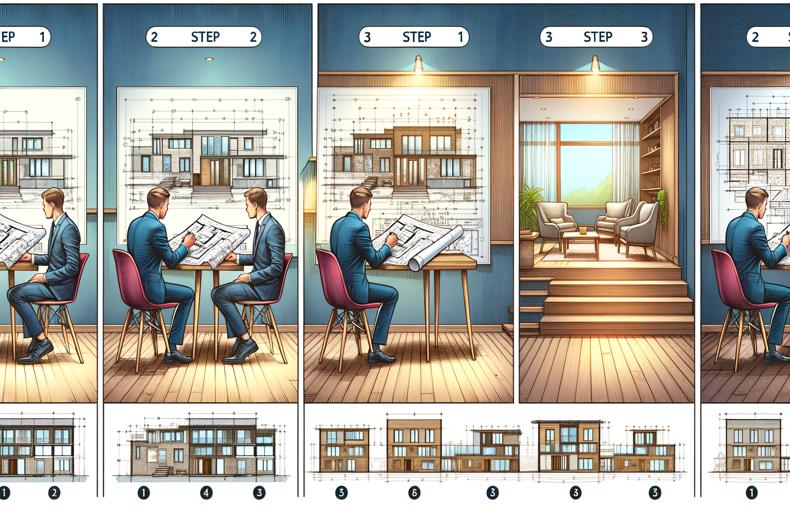Finding Your Perfect Spot: How to Choose the Ideal Location for Your Dream Home
When it comes to building your dream home, choosing the right location is just as important as selecting the design or floor plan. The perfect location can enhance your lifestyle, add value to your property, and ensure long-term satisfaction with your investment. In this guide, we'll break down the critical factors to consider when selecting the ideal location for your new home.
1. Understanding Your Lifestyle Needs
The first step in choosing the perfect location is assessing your lifestyle. Think about what you need in your daily life to feel comfortable and fulfilled. Are you someone who thrives in the city, or do you prefer the tranquility of a rural area? Some important questions to ask yourself include:
- How close do you want to be to work or school?
- Do you prefer proximity to nature or urban amenities?
- Are you looking for a family-friendly neighborhood with parks and schools?
- Is public transportation important to you?
Understanding these needs can significantly narrow down your location options and ensure your new home fits seamlessly into your life.
2. Evaluating the Neighborhood
Once you have an idea of what type of environment you want, it's time to dig deeper into potential neighborhoods. Here are some factors to consider:
- Safety: Research crime rates in the area using resources like local police department websites or real estate platforms that provide crime statistics.
- Schools: If you have children or plan to in the future, quality schools are a key consideration. Websites like GreatSchools.org can help you evaluate nearby school districts.
- Amenities: Consider what conveniences you want nearby, such as grocery stores, healthcare facilities, parks, restaurants, and entertainment options.
- Future Growth: Look into local development plans. Is the area expected to grow, and if so, how will this impact traffic, noise, and property values?
3. Accessibility and Commute Times
A major factor in choosing the ideal location is how accessible it is to key places you frequent. Think about the following:
- Work: How long will your commute be? Will traffic be an issue during peak hours?
- Public Transport: For those who rely on public transport, proximity to bus stops, train stations, or metro lines is crucial.
- Road Access: Is the area well connected to major highways, and are roads well-maintained?
Make sure to test drive your commute or check online maps to see how traffic patterns may impact travel times. This small effort can save you from a daily frustration after you move in.
4. Zoning Laws and Land Use
Before making any decisions, ensure that the land you're considering is properly zoned for residential use. Zoning laws dictate how the land can be used, and they vary by location. You'll want to ensure:
- Residential Zoning: The plot is zoned for the type of home you're building.
- Environmental Restrictions: Some areas have restrictions related to flood zones, wildlife preservation, or protected natural resources.
- Future Development: Know if there are plans for commercial or industrial development nearby, which may affect your property's long-term value and livability.
Consulting local zoning offices or checking municipal websites can give you a clearer understanding of these issues.
5. Climate and Environmental Factors
The local climate plays a significant role in how comfortable you'll be in your new home. Different climates require different types of insulation, heating, and cooling systems, and they can impact your overall home maintenance needs. Consider:
- Weather Patterns: Do you enjoy warm climates, or would you prefer somewhere with distinct seasons? Check local averages for temperature, rainfall, and snowfall.
- Natural Disasters: Be aware of the risks of natural disasters such as floods, hurricanes, tornadoes, or wildfires. Areas prone to such events may require specific building regulations and insurance policies.
- Elevation and Drainage: Ensure that the land has proper drainage and isn't prone to flooding. Additionally, if you're building on a slope, you may face higher construction costs for foundation work.
6. Property Taxes and Costs of Living
While a beautiful location may seem perfect, it's essential to ensure it's financially viable in the long run. Property taxes can vary widely from one area to another, so research local tax rates before deciding. Consider:
- Property Taxes: High property taxes can significantly affect your overall housing costs. Check the local government's website or speak with a real estate agent to get accurate estimates.
- Cost of Living: Factor in the general cost of living in the area, including utility rates, grocery prices, and general lifestyle expenses. Some locations may offer lower property taxes but have higher living costs in other areas, which could offset your savings.
7. Community and Cultural Fit
Finally, ensure that the community aligns with your values and lifestyle. Some areas may have a strong sense of community, with active local events, friendly neighbors, and a welcoming atmosphere. Others may cater more to a quieter, private lifestyle. Ask yourself:
- Are there opportunities for socializing and community involvement?
- Does the area support your hobbies and interests, such as hiking, arts, or dining?
- What is the general demographic of the neighborhood?
Exploring local forums or visiting potential neighborhoods at different times of the day can provide valuable insight into whether a location will feel like home.
Conclusion
Choosing the ideal location for your dream home is a decision that will impact your life for years to come. By carefully considering factors like lifestyle needs, neighborhood safety, accessibility, climate, and taxes, you’ll be well on your way to finding a location that aligns perfectly with your goals and desires.
Additional Resources:
- GreatSchools.org: Find detailed school ratings and reviews.
- City-Data: Access demographic data, crime statistics, and climate information for specific areas.
- Zillow: Explore real estate listings, neighborhood insights, and property tax information.
By following this comprehensive guide, you’ll feel confident in choosing the perfect spot to build your dream home, creating the foundation for a happy and fulfilling future.











